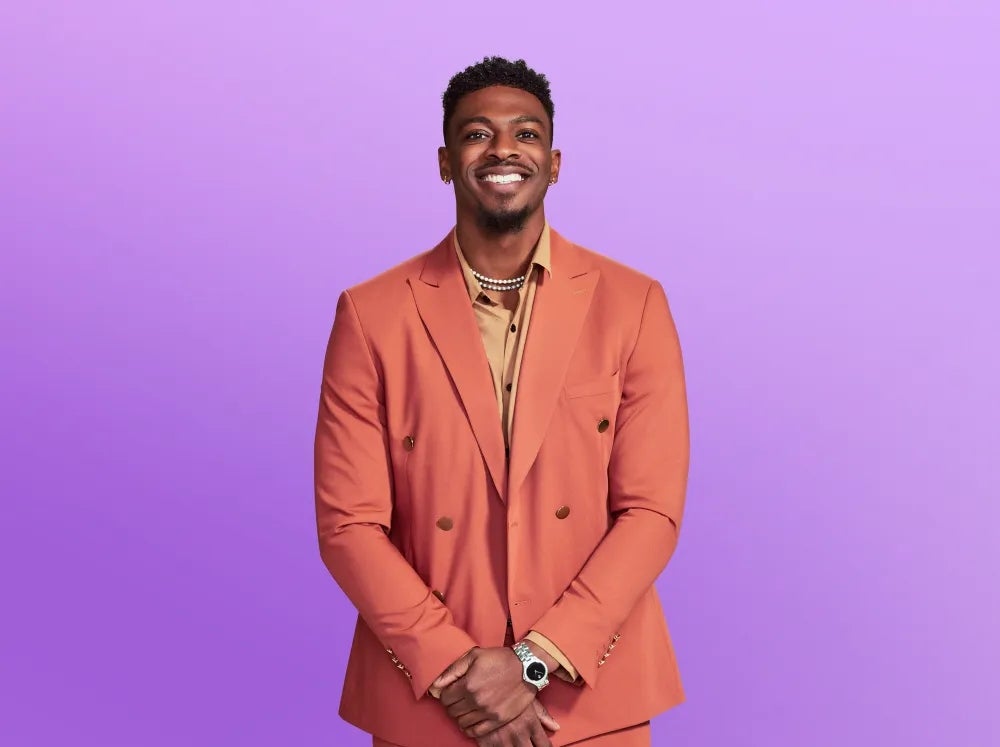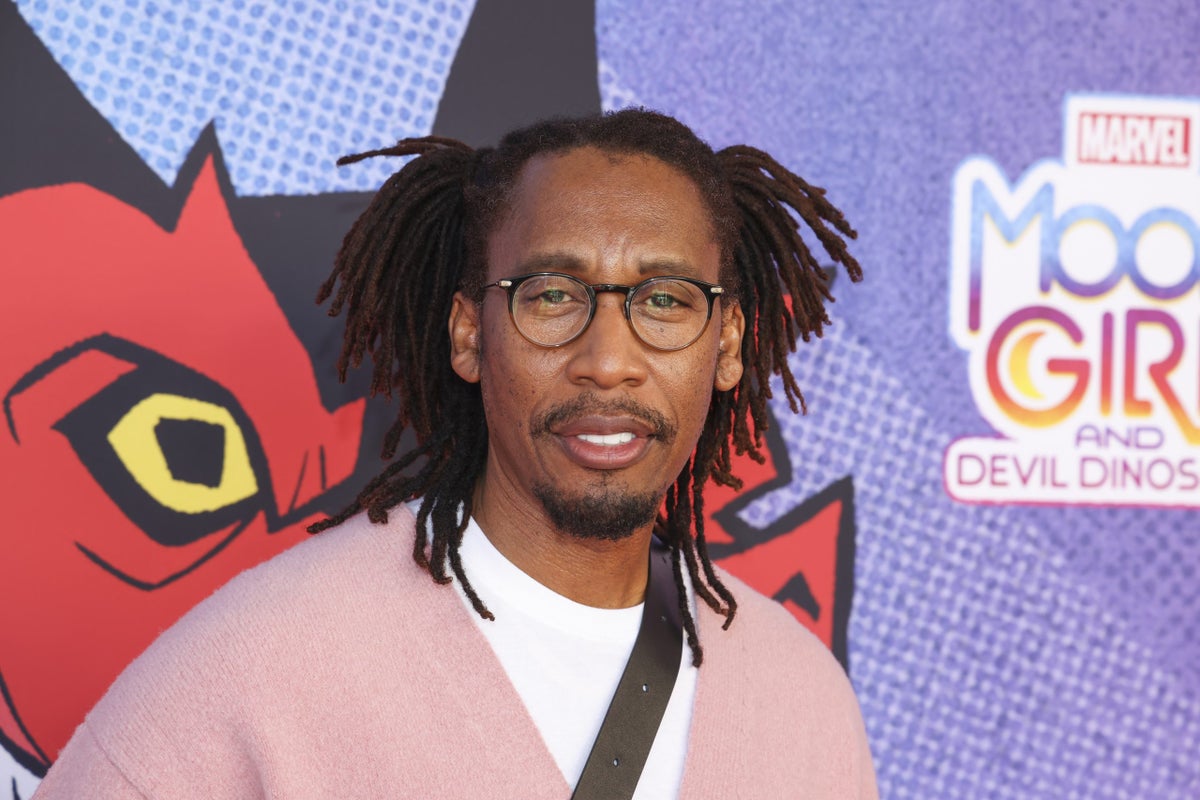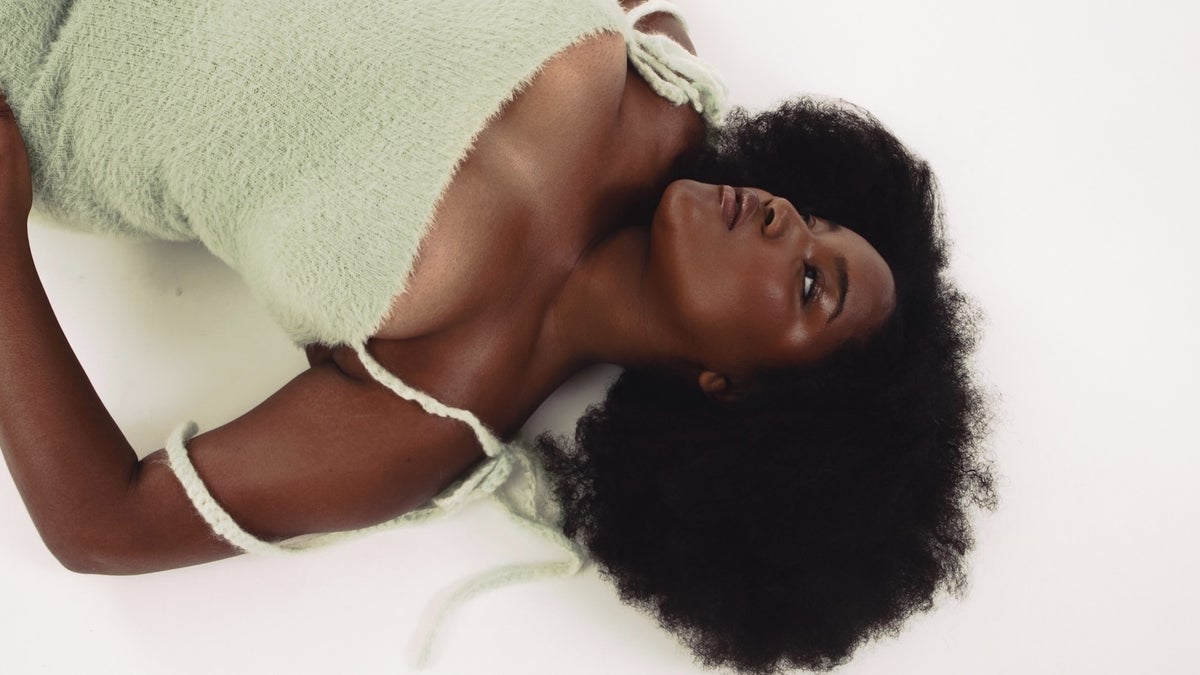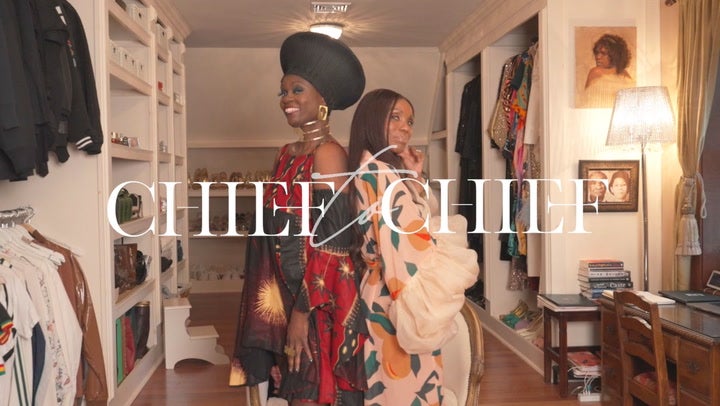
During the Love Is Blind reunion, one of the first things I noticed was how Clay Gravesande sat with a posture that told me he wanted to appear as perfect, put together, and a man prepared to address any and every question that came his way about his televised and current relationship status with Amber Desiree Smith, or “AD.” As a therapist who specializes in male mental health, I wanted nothing more than to jump through the screen and shake him loose. But even if he were sitting on my couch, I wouldn’t do that. Instead, I’d ask him a very simple, but most complex question known to man: “How are you? How are you feeling today?”
My goal would be to bring Clay to the current moment and to take inventory of where he is emotionally. I would reciprocate the energy by being transparent about where I am emotionally (which I do when clients ask).
I would imagine the reunion show was likened to a “hot seat.” We, the public, have critiqued and participated in a collective surveillance of Clay. Thus, he’s more self-aware than ever.
That said, a goal in therapy with men is to create an environment where they know without a doubt that they are coming to a space that is theirs. They have agreed to invest trust, finances, and vulnerability into their mental and emotional wellness, and I would be irresponsible if they didn’t feel comfortable enough to take their shoes off and relax their shoulders.
Being vulnerable takes courage because that’s when we allow ourselves to be seen.
As our meeting continues, I’d look for various body cues that inform how the client is responding. In a world where men, especially men of color, aren’t always seen, the more comfortable we are in the space we occupy, the more authentic we allow ourselves to be, thus creating an opportunity for change.
One of my favorite moments is when a client takes off his shoes. You see, removing shoes is not just an implication of relaxation after a long day, but also an indication that the client can finally feel at home with his emotions within a space where he can process them.
I wish Clay and other men had a safe space where they could take off their shoes.
Clay’s journey on Love is Blind struck a chord with me; from joining his married father on dates with other women to his fear of faithfulness to AD. Like Clay, many men carry the weight of their past experiences into their relationships, impacting their ability to connect deeply and authentically with their partners.
Mental health can be unchartered territory for many men and the people who love them and want them to seek support. One session won’t heal the years of trauma or alter the beliefs we’ve held. It takes time, sweat equity, and most of all, willingness.
I am acutely aware of the unique challenges that men face when it comes to addressing their mental health. We live in a society that often expects men, particularly Black men, to embody strength and resilience at all times, leaving little room for vulnerability or emotional expression. In my practice, I have seen firsthand how these societal expectations can take a toll on men’s mental well-being, especially in the context of romantic relationships.
When working with men, a good therapist is culturally aware of the impact of race, sexuality, societal roles, and ego on the Black man. Clay entered this experiment to find love, but his presence has created a bigger narrative: how men, especially Black men, show up in relationships due to lived experiences.
Research tells us that 26% of men in Clay’s age group of 18-44 experience symptoms associated with anxiety and depression during their life while only 12% will seek help for their mental health. Black male psychologists make up less than 5% of mental health practitioners. While this number is growing, the lack of representation is a contributing factor that deters men from seeking therapeutic services. In addition, 64% of adults report experiencing at least one trauma in their lifetime. Emotional neglect and divorce or separation are two experiences we see discussed on the show that are indicated on the Adverse Childhood Experiences questionnaire.
I believe in holding a space where men can be heard, seen, and challenged.
As Clay’s therapist, I would approach his case with a combination of empathy, understanding, and cultural sensitivity. In Clay’s case, his journey on Love is Blind catalyzed self-discovery and growth. The three things I would encourage him to always remember include the following:
- Forgiveness is not required, it’s chosen.
- Accountability is vital to change.
- Help doesn’t look like just going to therapy, but also practicing vulnerability and learning the skills to develop different behaviors.
A goal in therapy is for men to identify what patterns of behavior they desire to interrupt. Therapy can help them make that decision and develop the skills to make sustainable changes.
One of the first steps in creating a safe space for men like Clay is challenging the harmful stereotypes and expectations surrounding masculinity, dismantling the myth that strength means suppressing emotions and vulnerability. Instead, let’s celebrate the courage it takes for men to confront their innermost struggles. Moreover, we must hold men accountable for their actions and behaviors, while also recognizing the systemic barriers that may prevent them from accessing the support they need.
I want to be clear here that a person’s quest for healing must start with them. While influences such as family and partners can move a person to seek professional support, it takes self-willingness to confront past traumas and be vulnerable with one’s partner.
But Clay’s story is just one example of the broader issues facing men’s mental health. We must continue to amplify the voices of Black men and other marginalized communities, centering their experiences in conversations about mental health and wellness until they are comfortable taking off their shoes.
Justin K. Dodson is providing safe spaces for me to be seen, heard, and challenged. The founder and owner of Navigating Courage, Counseling & Consultation, LLC, Dodson and his team of Black male mental health providers prioritize adult males’ brain and mental health, providing 1:1 coaching and therapy.







